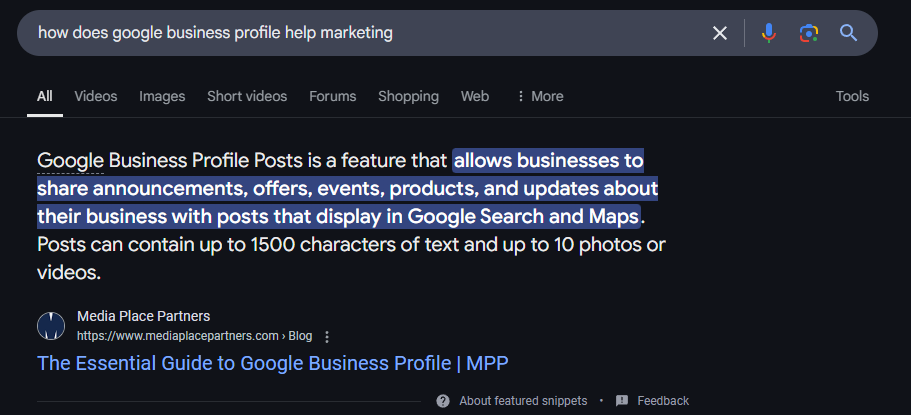AI Search is Transforming Traditional SEO Practices

What is AI Search?
Artificial Intelligence (AI) fundamentally alters how we search for and consume information online. As AI-driven search engines become more sophisticated, traditional search engine optimization (SEO) strategies are undergoing a seismic shift. This blog post explores how AI search is reshaping the digital landscape, what it means for businesses and marketers, and how to adapt your approach to maintain visibility and relevance.
The Rise of AI-Driven Search
AI-powered search engines, such as Google’s Search Generative Experience (SGE), Bing’s AI-enhanced search, and OpenAI’s integrations with platforms like ChatGPT, are offering users more nuanced, context-aware results. Unlike traditional search engines that display a list of links based solely on keyword relevance and backlinks, AI search analyzes the intent behind queries, understands natural language more effectively, and provides more comprehensive answers directly within the search interface.
What’s Driving This Shift?
- Natural Language Understanding (NLU): AI models are trained on vast amounts of text, enabling them to interpret queries that are phrased as complete questions or conversational requests.
- Generative Capabilities: Rather than just finding existing content, AI-powered search engines can generate new, synthesized responses by summarizing and blending information from multiple sources. However, sometimes these answers are not 100% true.
- Personalization and Context Awareness: AI search considers user history, preferences, and even location to deliver highly personalized results.
This evolution means that users are increasingly finding what they need without clicking through to external websites. For brands, this poses a significant challenge:
How do you stand out in a search landscape where fewer users are navigating to traditional web pages?

The above image is a screenshot for the search term: “how does google business profile help marketing”. Google displays the answer at the top (above paid, Maps, and organic listings). The goal is to have AI answer the question directly in the search results so that the sercher does not have to go to the website it referenced.
The Decline of the “Ten Blue Links” Model
For years, the standard search engine results page (SERP) was dominated by a familiar format: ten blue hyperlinks to different websites, accompanied by snippets of text. This model rewarded sites that could successfully leverage traditional SEO tactics like:
- Optimizing keywords in titles, headers, and content
- Building a robust backlink profile
- Improving page load speed and mobile-friendliness
With AI-driven search, these traditional ranking signals are no longer the sole determinants of visibility. AI search engines often surface a single comprehensive response rather than a list of options. While the traditional links haven’t vanished entirely, their prominence is fading, and fewer users are clicking through to external pages.
Implications for Traditional SEO Strategies:
- Reduced Click-Through Rates (CTRs): With AI answering more queries directly, fewer users are visiting individual websites. This calls for a reevaluation of metrics and ROI for SEO campaigns.
- Content Fragmentation: AI models pull information from multiple sources, meaning that a single piece of content may contribute to numerous AI-generated responses without earning direct traffic or credit.
- Shifting Value of Keywords: The emphasis is moving from simply matching keywords to understanding the user’s intent and providing comprehensive, authoritative information.
The Fragmentation of Search Platforms
Recent trends indicate a diversification in how users seek information online, leading to a fragmentation of search platforms. While Google has long been the dominant force in the search engine market, its share has experienced fluctuations in recent years.
Emerging Search Platforms and User Behavior:
- AI-driven search tools, such as OpenAI’s ChatGPT and Perplexity AI, are gaining traction by offering conversational and personalized search experiences. These platforms provide direct answers, reducing the need for traditional search engine queries. They also provide links to a website where the information came form so the searcher can click through if they choose. It is no longer a list of 10 websites on a page.
- Younger users are increasingly turning to platforms like TikTok and Instagram for search purposes, especially for product recommendations and how-to content, challenging Google’s traditional search dominance. YouTube is also a highly searched platform.
- Google still holds the most searches per month, but the dominance is quickly waning as different platforms are preferred by searches. People do not like ads and can avoid them by using AI search alternatives.
Implications for Brands:
The diversification of search behavior necessitates a broader digital marketing strategy:
- Multi-Platform Optimization: Beyond traditional SEO for Google, businesses should optimize content for visibility on alternative platforms, including social media and AI-driven search tools.
- Content Adaptation: Tailor content to suit the formats and algorithms of various platforms, such as creating short-form videos for TikTok or developing conversational content for AI chatbots.
- Diversified Advertising: Allocate advertising budgets across multiple platforms to reach audiences who may not rely on traditional search engines.
By acknowledging and adapting to the fragmented search landscape, businesses can maintain and enhance their online visibility across a variety of user-preferred platforms.
How Marketers and Businesses Must Adapt
To thrive in an AI-driven search environment, businesses must rethink their SEO strategies. While traditional tactics still hold value, the focus is shifting toward creating high-quality, context-rich content that AI models can recognize, utilize, and attribute to authoritative sources.
1. Embrace Content Depth and Authority
AI-driven search prioritizes well-researched, in-depth content that demonstrates expertise. Marketers should:
- Produce long-form articles, guides, and whitepapers that comprehensively cover topics.
- Cite reputable sources and link to authoritative studies to establish credibility.
- Regularly update content to keep it fresh and relevant.
2. Optimize for Conversational and Question-Based Queries
As users become more comfortable asking detailed, conversational questions, businesses should:
- Incorporate natural language phrasing into content. For example, create FAQ sections that answer common customer inquiries in a straightforward, conversational tone.
- Focus on semantic SEO, ensuring that your content addresses related topics and concepts to satisfy broader search intents.
3. Build a Strong Brand Presence
AI models increasingly rely on trusted, recognized sources. Establishing a strong brand identity and earning mentions from reputable outlets can help ensure that your business remains visible:
- Cultivate relationships with industry thought leaders and respected publications.
- Engage in guest blogging and seek opportunities to contribute expertise to trusted platforms.
- Strengthen your social proof through customer reviews, testimonials, and case studies.
4. Leverage Structured Data and Schema Markup
AI-driven search engines rely on structured data to understand context and relationships. Implementing schema markup can help search engines and AI models better interpret your content:
- Add schema for FAQs, product descriptions, events, and reviews.
- Ensure that your site’s metadata accurately reflects the content on each page.
5. Focus on User Engagement and Experience
User engagement signals, such as time spent on site, page views per session, and lower bounce rates, remain critical:
- Create interactive, multimedia-rich content that keeps users engaged.
- Optimize site navigation and internal linking to guide users toward valuable information.
- Improve site speed and ensure mobile responsiveness to enhance the overall user experience.
Preparing for a Hybrid Search Landscape
While the rise of AI search is undeniable, it doesn’t mean that traditional search engines and their ranking factors are irrelevant. Instead, marketers must prepare for a hybrid search landscape where traditional SEO and AI optimization coexist. This means balancing efforts between:
- Meeting AI’s demand for comprehensive, trustworthy content
- Continuing to optimize technical SEO factors like site speed, mobile usability, and secure connections
- Monitoring AI-driven search platforms and adapting to new formats, such as featured snippets or directly generated answers
Thriving in an AI-Driven Search World
As AI search continues to transform traditional SEO practices, businesses must stay agile. By focusing on content quality, authority, and user experience, marketers can remain competitive in this evolving digital environment. While the “ten blue links” may be fading, the principles of providing valuable, relevant, and trustworthy information remain as crucial as ever.
By embracing these changes and adapting strategies to align with AI-driven search engines, businesses can ensure that they not only survive but thrive in the next era of SEO.
Frequently Asked Questions (FAQs)
Q: What is AI-driven search, and how does it differ from traditional search engines?
A: AI-driven search uses advanced machine learning and natural language processing to understand the intent behind user queries, generate personalized responses, and often provide direct answers without users needing to click through to websites. This approach contrasts with traditional search engines that primarily rely on keyword matching and link-based ranking factors.
Q: How can businesses optimize their content for AI-driven search?
A: Businesses should produce high-quality, authoritative content that addresses user intent. This includes creating in-depth articles, utilizing structured data for better context, and ensuring their content is relevant, trustworthy, and up-to-date. Semantic optimization and conversational tone also help align with AI-driven search engines.
Q: Will traditional SEO tactics still be relevant in the future?
A: While traditional SEO tactics, such as keyword optimization and backlink building, remain important, they are no longer the sole factors determining search visibility. The future of SEO will likely involve a hybrid approach that combines traditional practices with strategies that cater to AI-powered search tools and personalized user experiences.
Q: How does AI impact user engagement metrics?
A: AI-driven search results often provide direct answers, which can reduce time-on-site metrics for certain pages. However, users tend to find more relevant content when they click through, potentially increasing engagement and reducing bounce rates.
Q: Are structured data and schema markup still important for AI-driven search?
A: Yes, structured data remains critical. It helps AI understand the context and relationships within your content, making it easier for AI models to identify, extract, and present relevant information to users.
Q: What role do brands play in AI-driven search results?
A: Brand trust and recognition are increasingly important. AI models often prioritize well-known, authoritative sources when generating responses. Establishing a strong brand presence through consistent, high-quality content and reputable backlinks can improve your visibility.
Q: How can small businesses compete in an AI-driven search landscape?
A: Small businesses can focus on niche expertise, provide highly detailed content that answers specific questions, and leverage local SEO techniques. AI tends to favor accurate, specialized, and well-structured information, which small businesses can use to their advantage.
Q: Will social media content influence AI-driven search?
A: Yes, social media content is increasingly being integrated into AI-driven search. AI models often pull information from various platforms, so maintaining an active, authoritative social media presence can boost your visibility.
Q: How do AI-driven search engines determine credibility?
A: AI considers factors such as the author’s expertise, the publication’s reputation, citations from trusted sources, and positive user feedback. Demonstrating authority, transparency, and accuracy is key to earning trust from AI algorithms.
Q: What should businesses prioritize for long-term success in AI-driven search?
A: Businesses should focus on creating valuable content, building a strong online presence, optimizing for user intent, and keeping up with changes in AI technology. A balanced approach to SEO, content marketing, and brand development will help maintain relevance as the search landscape evolves.
The post AI Search is Transforming Traditional SEO Practices appeared first on Premium Websites, Inc..
Original post here: AI Search is Transforming Traditional SEO Practices
Comments
Post a Comment